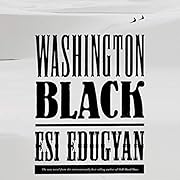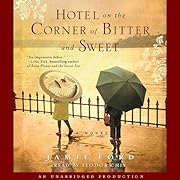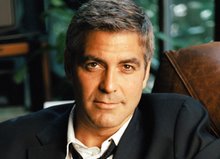Only two historical fiction books this month, and neither delivered the great story I was hoping for. Neither was terrible, but neither was one I'm pushing on to people to read. They both had a bit of buzz at one time and I'm glad to have them off my mental TBR list.
Washington Black by Esi Edugyan
Washington Black is a child slave on a Barbados plantation when he is chosen to be a manservant for the owner's brother, Christopher. Christopher is a naturalist, inventor, and philosopher who takes Wash under his wing. Christopher, or Titch, is against slavery, but seems to have less problems living off the money the plantation gives the family. After an incident, Wash and Titch go on the run so protect Washington. They end up in the north of Canada, and then Titch ends up having to survive on his own, in Nova Scotia.
Anyway, there is lots of travelling, lots of adventures for a young black man in the 19th century travelling the world. I was a little disappointed as I wasn't as interested in Washington Black as I was Half-Blood Blues, also a historical novel by Edugyan. I didn't like Titch or Wash that much and didn't feel like I got to know them. It reminded me of The Book of Negroes by Lawrence Hill. Start with slavery atrocities, get away from the plantation, end up in Nova Scotia where life isn't all that much better.
Historical fiction taking place in two time periods - 1940s and 1980s in Seattle. Our serious topic here was Japanese internment, but our story's main character is a Chinese man/boy. There are strong jazz motifs in the book as well. As thirteen years olds, Henry and Keiko develop a friendship at school as two visible minorities in the 1940s. After Pearl Harbour Keiko and her family are taken to an internment camp, but Henry tries to stay in touch with his love.
I was put off by an inaccuracy at the very beginning which made me question more than I might have. (Henry's son was involved in an online grief group in 1986. Nope, that wasn't happening. I remember 1986) So that kind of thing made it hard to believe. Henry spends time in the 1980s at a hotel basement where all the belongings from the 1940s Japanese interment people were still being stored, which also strained credubility that so much was still there. The ending was what you would expect, again, not bad but predictable.
It wasn't awful, but it wasn't the compelling epic story I want in historical fiction.









